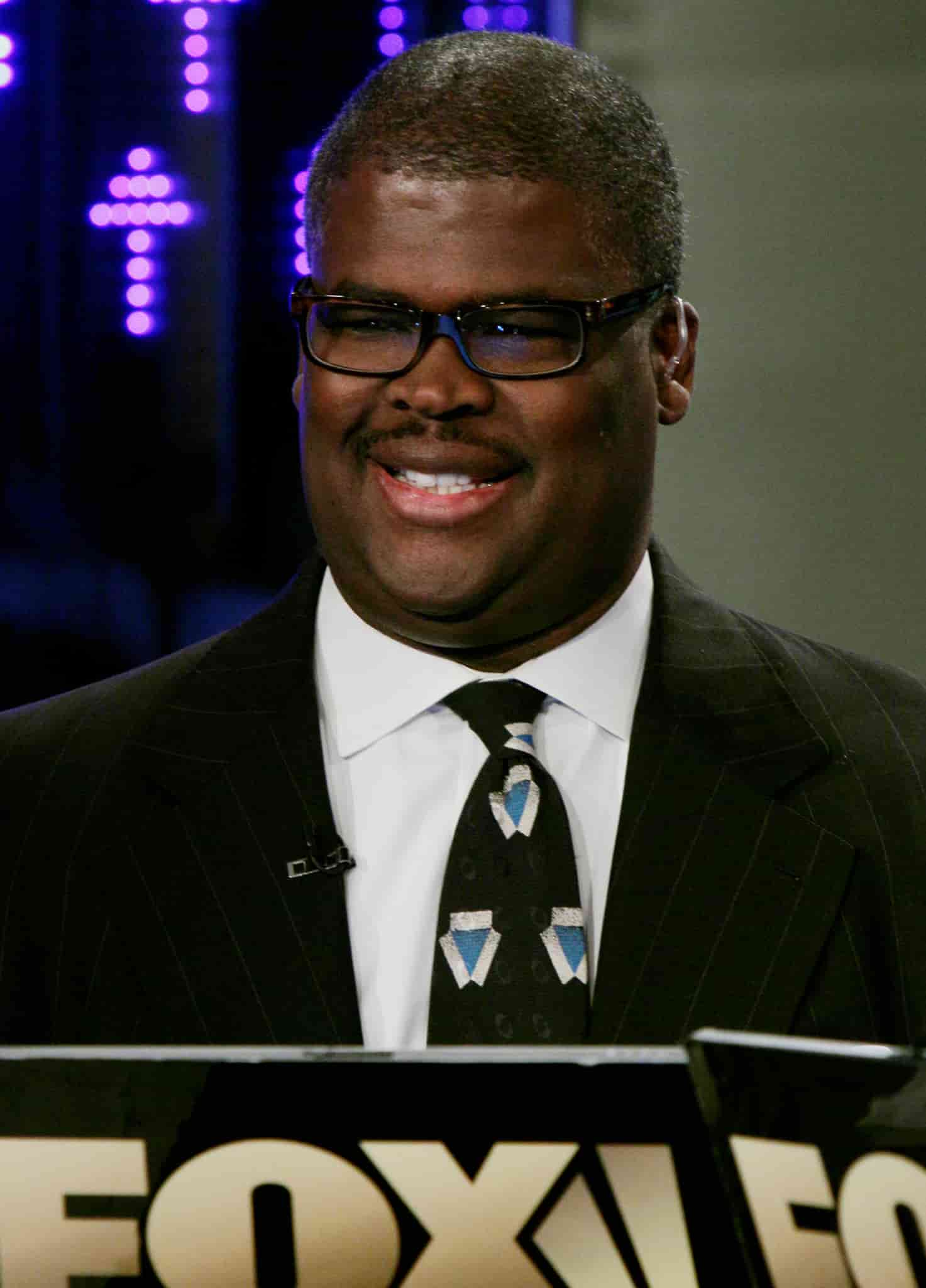Unpacking Charles Payne's Net Worth: A Look At How Public Figures Build Wealth
Have you ever found yourself wondering about the financial success of well-known public figures, especially those who talk about money for a living? It's a common thought, so it is. People often get curious about what is Charles Payne's net worth, perhaps because he's a familiar face on financial news, and frankly, we're all a bit fascinated by how wealth comes together. This kind of curiosity isn't just about a number, though; it's also about understanding the journey, the career choices, and the different ways someone like him might build up their assets over time.
Figuring out the exact financial standing of any public personality, including someone like Charles Payne, can be a real puzzle, you know? Unlike publicly traded companies, whose financial details are out there for everyone to see, an individual's personal wealth is usually kept very private. So, while we can discuss the typical avenues for wealth creation for someone in his position, pinning down a precise figure is, honestly, more or less an estimate based on publicly available career information and industry averages. We're here to talk about the elements that typically contribute to such a figure, not to give you a definitive number that's just not possible for private individuals.
It's interesting, too, that when people ask about what is Charles Payne's net worth, they're often looking for more than just a dollar amount. They might be seeking inspiration, trying to understand how a career in financial media can lead to significant wealth, or simply satisfying a natural curiosity. We're going to explore the various pieces that make up a public figure's financial picture, giving you a better sense of the whole thing. Just to be clear right from the start, the information provided to us about "My text" relates to Charles Schwab, a financial services company, and doesn't actually contain any details about Charles Payne's personal finances or net worth. So, we won't be drawing any conclusions from that text regarding his wealth, as it's not relevant here.
Table of Contents
- Charles Payne: A Brief Career Overview
- Personal Details and Bio Data
- Understanding Net Worth for Public Figures
- Why the Curiosity About Public Figures' Wealth?
- Factors That Influence Net Worth Over Time
- Common Questions About Financial Personalities' Earnings
- Final Thoughts on Financial Success
Charles Payne: A Brief Career Overview
Charles Payne has certainly made a name for himself in the world of financial media, that's for sure. He's widely recognized for his role as a host on Fox Business, particularly with his show "Making Money with Charles Payne." His journey into finance actually started long before his television career, though. He served in the U.S. Air Force, which is quite a different path, isn't it?
After his military service, he moved into the financial sector, eventually founding his own company, Wall Street Strategies, back in 1991. This company, you know, provides independent stock market research and analysis, which is a big part of his background. His work there, and his appearances on various financial news programs, slowly but surely built his reputation as a knowledgeable and often outspoken commentator on market trends and economic issues. He tends to be someone who doesn't shy away from expressing his views, which probably contributes to his popularity.
His transition to a prominent role on Fox Business really solidified his public image as a financial expert. Through his show, he discusses everything from individual stock performance to broader economic policy, making complex financial topics more accessible to a wide audience. This consistent presence on a major financial news network is, in some respects, a primary driver of his public profile and, by extension, his earning potential. It's interesting how a career can evolve from a research firm to a national television show, isn't it?
Personal Details and Bio Data
While specific personal financial details are private, we can outline some general biographical information about Charles Payne, just to give you a clearer picture of the person behind the financial insights. This table provides a quick look at some commonly known facts about his public persona.
| Category | Detail |
|---|---|
| Full Name | Charles V. Payne |
| Occupation | Financial Commentator, Stock Analyst, Author |
| Known For | Host of "Making Money with Charles Payne" on Fox Business |
| Early Career | U.S. Air Force, Founder of Wall Street Strategies |
| Nationality | American |
| Public Persona | Outspoken, market-focused, often discusses economic policy |
Understanding Net Worth for Public Figures
So, what exactly is net worth? Simply put, it's the total value of all an individual's assets minus all their liabilities. Assets are things you own that have value, like cash, investments, real estate, and even valuable personal possessions. Liabilities, on the other hand, are what you owe, such as mortgages, loans, and credit card debt. Calculating this for a public figure like Charles Payne involves looking at potential income sources and likely investments, though exact figures are almost always estimates, you know, because of privacy.
It's important to remember that for someone in the public eye, especially those who aren't required to disclose their personal finances, any reported net worth figure is usually an educated guess. These estimates often come from analyzing their known career trajectory, typical salaries for their roles, and any publicly acknowledged ventures. You can't just look it up like you would a company's stock price, that's for sure. The dynamic nature of investments and market conditions also means that net worth can fluctuate quite a bit from day to day, or even hour to hour, particularly for someone deeply involved in the financial markets, which Charles Payne certainly is.
Income Streams for a Financial Commentator
A significant portion of a financial commentator's net worth typically comes from their primary employment, which for Charles Payne would be his role at Fox Business. Television personalities, especially those with their own shows, can command substantial salaries, that's a given. The exact amount depends on their experience, popularity, and the terms of their contract, which are, you know, highly confidential.
Beyond his television work, someone like Charles Payne probably has several other income streams that add to his overall financial picture. For instance, he founded Wall Street Strategies, his own financial research firm, which has been operating for decades. This business likely generates revenue from subscriptions, consulting services, or other financial products it offers. So, it's not just the TV gig; there's a whole other enterprise at play, too.
Authorship is another common avenue for financial experts. Charles Payne has written books, and book sales, along with any advances received, contribute to earnings. Public speaking engagements are also a very real source of income for well-known figures. Corporations, industry groups, and conferences often pay significant fees for keynote speakers, especially those who can offer insights into the economy or markets. These speaking fees can really add up, you know, depending on how often they speak and their demand.
Then there are potential endorsements or partnerships, though these might be less common for a straight financial news commentator compared to, say, a sports celebrity. However, opportunities for brand collaborations or advisory roles could still arise. Basically, their expertise becomes a valuable commodity in many different ways, which is how they build up their financial standing.
Assets and Investments
For someone deeply immersed in the financial world, it's safe to assume a significant portion of their wealth would be tied up in investments, that's just logical. These could include a diverse portfolio of stocks, bonds, mutual funds, and perhaps even alternative investments. As a financial analyst, Charles Payne would likely be very active in managing his own investment portfolio, potentially generating capital gains and dividends. This is where, you know, a good understanding of the markets can really pay off for an individual.
Real estate is another common asset category. Many successful individuals own their primary residence, which can appreciate in value over time, and some might also own investment properties. These properties, if owned outright or with significant equity, contribute directly to net worth. It's not just about the house you live in; it could be commercial properties or rental units, too.
Other assets could include retirement accounts, such as 401(k)s or IRAs, which grow tax-deferred. There might also be valuable personal possessions like art, collectibles, or luxury vehicles, though these usually represent a smaller fraction of overall net worth for most people. The key thing is that assets are things that can be converted into cash or hold intrinsic value, and they are what you tally up on the positive side of the ledger, more or less.
The Role of Liabilities
While we focus a lot on what someone owns, it's just as important to consider what they owe when calculating net worth, isn't it? Liabilities are the debts that subtract from a person's assets. For most people, and likely for public figures too, the largest liability is often a mortgage on their home or any investment properties they might own. This is a very common kind of debt, you know.
Other common liabilities can include personal loans, car loans, and credit card debt. While someone with significant income might manage these debts effectively, they still reduce the overall net worth. It's a simple equation, really: assets minus liabilities equals net worth. So, even if someone has many valuable assets, if they also have substantial debts, their net worth will be lower than if they had fewer debts. It's a balance, basically.
For a business owner like Charles Payne, there might also be business-related debts or lines of credit associated with Wall Street Strategies. These are liabilities of the business, but they can, in some respects, indirectly affect personal net worth depending on how the business is structured and any personal guarantees involved. It's a bit more complicated when you own a company, as a matter of fact.
Why the Curiosity About Public Figures' Wealth?
It's a pretty natural human tendency to be curious about the financial standing of people in the public eye, especially those who are successful, isn't it? For someone like Charles Payne, who talks about money and investments all the time, the interest is perhaps even stronger. People might look to him as a kind of financial role model, or they might just be curious to see if his own financial success mirrors the advice he gives. It's a way of, you know, checking the credibility, in a sense.
There's also an element of inspiration. Seeing someone achieve significant financial success can motivate others to pursue their own financial goals. It can make people think about different career paths or investment strategies. So, it's not just about gossip; it can actually be quite motivating for some folks, too.
Moreover, in a world where financial literacy is increasingly important, understanding how wealth is accumulated, even in a general sense, can be educational. It helps people grasp the concepts of income, assets, and liabilities in a real-world context, which is pretty helpful, actually. It's a way of making abstract financial ideas a bit more concrete, you know.
Factors That Influence Net Worth Over Time
A person's net worth is rarely static; it's a very dynamic figure that changes over time, sometimes quite rapidly. For a financial commentator like Charles Payne, market performance plays a significant role. If his investments are heavily weighted in the stock market, a bull market could see his net worth grow considerably, while a downturn could lead to a decrease. It's a bit like a rollercoaster, you know.
Career longevity and continued relevance are also key. The longer a public figure maintains a prominent position, the more opportunities they have for high earnings from their primary role, speaking engagements, and other ventures. A sustained career means more years of accumulating wealth and potentially benefiting from compounding returns on investments. So, staying in the game for a long time is pretty important.
Personal financial decisions also have a huge impact. How someone manages their income, whether they save and invest wisely, and how they handle debt all contribute to their net worth. Even for someone who advises others on finance, personal choices about spending versus saving, and the types of investments made, are very important, as a matter of fact. These choices can make a really big difference over decades.
Finally, unexpected life events or changes in personal circumstances can also influence net worth. While we hope for the best, things like health issues, family needs, or unforeseen expenses can impact financial standing. It's a reminder that even for public figures, life happens, and finances are often, you know, tied to those life events.
Common Questions About Financial Personalities' Earnings
People often have very specific questions when they think about the wealth of financial commentators. Here are a few common ones, addressing the general principles rather than specific figures for Charles Payne, since those are private.
How do financial commentators typically get paid?
Financial commentators usually earn their primary income from their media contracts, whether it's with a television network, radio station, or online platform. These are typically salaried positions, often with performance bonuses or incentives tied to viewership or ratings. Beyond that, they often have income from other sources, too, like books, speaking engagements, and their own businesses, if they have them. It's a mix of things, really, that contributes to their earnings.
Do financial commentators invest their own money?
Yes, it's very common for financial commentators to invest their own money. In fact, many of them come from backgrounds in investment management or financial analysis, so they're already quite familiar with the markets. It would be a bit odd if they talked about investing all day but didn't actually do it themselves, wouldn't it? They often apply the same principles and strategies they discuss on air to their personal portfolios, within ethical guidelines and disclosure rules, of course.
Is it possible to know a public figure's exact net worth?
For most public figures who are not required to publicly disclose their personal financial statements, it's virtually impossible to know their exact net worth. The figures you see reported online are almost always estimates compiled by various media outlets or wealth tracking services. These estimates are based on educated guesses about salaries, known assets, and typical industry earnings. So, while they give you a ballpark figure, they are, you know, rarely precise. Only the individual and their financial advisors would know the true number, as a matter of fact.
Final Thoughts on Financial Success
Understanding what is Charles Payne's net worth, or the net worth of any public figure for that matter, is less about getting an exact dollar amount and more about appreciating the various paths to financial success. It highlights the diverse income streams that can contribute to wealth, from a steady job in media to entrepreneurial ventures, book deals, and speaking engagements. It also underscores the importance of wise investment decisions and effective debt management over a long career. So, it's a pretty interesting topic, you know, when you look at it from that angle.
Ultimately, while the precise figures remain private, the general principles of building wealth are universal: earn, save, invest, and manage your liabilities thoughtfully. For those interested in learning more about financial strategies that can help build personal wealth, you might find valuable insights by exploring resources on our site. Learn more about personal finance strategies on our site. You can also discover more about investment planning to help you on your own financial journey. These are good places to start, as a matter of fact, if you're looking to improve your own financial situation.
The world of finance is always moving, and keeping up with the latest trends and advice can be really beneficial. As of , the financial landscape continues to offer both challenges and opportunities, and understanding how figures like Charles Payne navigate it can provide a useful perspective. For further reading on financial news and market insights, you could check out reputable financial news websites like Reuters Finance, which often provides general market overviews and commentary.

Prince Charles Net Worth - Net Worth Post

Charles Payne Net Worth - Net Worth Post

Charles Payne's Wife Yvonne Payne, Kids, Net Worth, and Illness